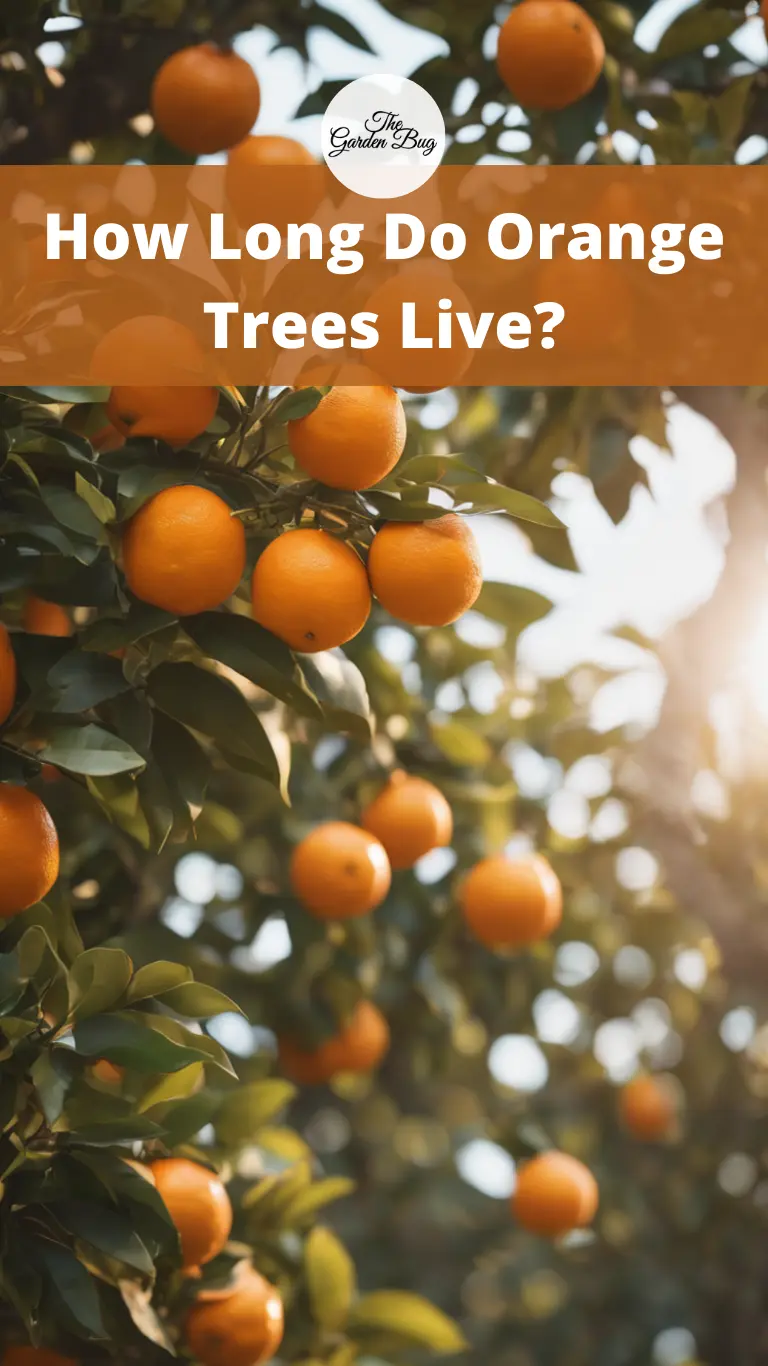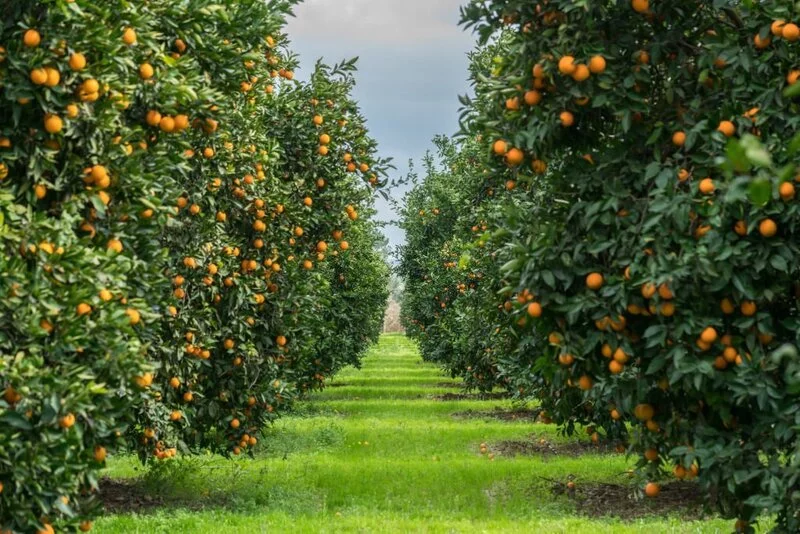Imagine biting into a juicy, sun-kissed orange picked straight from a tree in your own backyard. Isn’t that a delightful thought? Orange trees are not just known for their delicious and nutritious fruit, but they’re also a great addition to the home garden with their lush green leaves and aromatic blossoms.
But before you plant that sapling, have you ever wondered how long your orange tree might live? Understanding an orange tree’s lifespan can help you make the most out of your citrus gardening journey. Let’s peel back the facts and dive into the fascinating world of orange trees.
- Grow fresh juicy blood oranges filled with vitamin C and antioxidants right at home.
- Blood Orange tree is self-fertile – you can add additional trees for larger crop.
- Large shiny evergreen leaves will provide shade and can be an amazing addition to your landscaping.
- Easy to grow – grow your tree in a sun-soaked area indoors or keep it outdoors and bring it inside when it gets cold.
- A perfect gift that keeps on giving – great for holidays, housewarmings, birthdays and more!
Types of Orange Trees
Orange trees come in all shapes and sizes. Yes, not all oranges are created equal, and the type of orange tree can influence how long it will live. Here are a few main types:
- Sweet Orange Trees (Citrus sinensis): These are the most common and include varieties such as Valencia, Navel, and Blood oranges. They’re known for their sweet, juicy fruit and make up a large portion of commercial production.
- Bitter Orange Trees (Citrus aurantium): Also known as Seville oranges, these trees produce a more bitter fruit often used in marmalades and flavorings.
- Wild Orange Trees (Citrus macrophylla): These orange trees are more commonly found in the wild and are incredibly hardy, often used as rootstocks for other citrus trees.
Factors Influencing Orange Tree Lifespan
So, what determines how long an orange tree lives? It’s not just about the tree’s genetics, but also its environment and care.
- Genetic Factors: As mentioned earlier, the type of orange tree plays a significant role in its lifespan. Some varieties are naturally hardier and longer-lived than others.
- Environmental Factors: Where your orange tree lives matter. Climate, soil quality, sunlight, and even altitude can impact how long your tree thrives.
- Care and Maintenance: Last but certainly not least, how you care for your tree can make a huge difference. Proper watering, pruning, fertilizing, and disease management can help your tree live a long, fruitful life.
Understanding these factors can help you provide the best care for your orange tree, maximizing its health and longevity. Stick around as we delve further into the typical lifespan of an orange tree and how to help it live its best life!
Typical Lifespan of Orange Trees
After planting that little sapling and nurturing it with all your love and care, you must be curious about how long it will be part of your garden. A healthy, well-cared-for orange tree can live anywhere from 50 to 150 years! Isn’t that astounding? But remember, this depends on the tree’s variety and the conditions in which it’s grown. For instance, trees in commercial orchards may not live as long due to intensive farming practices, while a tree in your home garden, given the right care, can easily reach a ripe old age.
Signs of an Aging Orange Tree
So, how can you tell if your orange tree is getting on in years? Older trees may show signs like reduced fruit production or smaller, less juicy fruits. The foliage might begin to thin, and you might see more deadwood or signs of disease. Keep an eye on these indicators, as they can help you plan the right care strategy for your aging citrus companion.
Extending the Lifespan of Orange Trees
While orange trees have a natural lifespan, there are steps you can take to ensure your tree lives a long and healthy life. Here’s what you can do:
- Right Planting: Start on the right foot. Ensure your orange tree is planted in well-draining soil, in a spot that gets plenty of sunlight.
- Regular Care: Regular watering, timely pruning, and yearly fertilization can keep your tree healthy and happy.
- Disease Management: Keep a lookout for signs of pests or diseases. Early detection and management can prevent major health issues and extend your tree’s life.
- Patience: Finally, remember that trees grow slower than we do. Patience and consistent care are key to helping your tree reach its maximum potential.
With these steps, you can enhance your orange tree’s lifespan and enjoy its delicious, sun-kissed fruit for many years. So why wait? Get started on your citrus gardening adventure today!
Conclusion
The joy of savoring a home-grown, freshly picked orange is a unique pleasure every gardener should experience. Understanding the lifespan of an orange tree, the factors influencing it, and ways to prolong it, are all part of this exciting gardening journey. With the right knowledge and care, your backyard could become a citrus paradise that generations to come can enjoy. So, go ahead and plant that orange sapling today. Remember, the best time to plant a tree was 20 years ago. The second best time is now!
FAQs
- How long does it take for an orange tree to bear fruit? Typically, an orange tree will start bearing fruit when it’s around 3 to 6 years old.
- Do orange trees need a lot of sun? Yes, orange trees love sunlight. They need around 6-8 hours of direct sun daily.
- What is the best time of year to plant an orange tree? The best time to plant an orange tree is in early spring after the threat of frost has passed.





